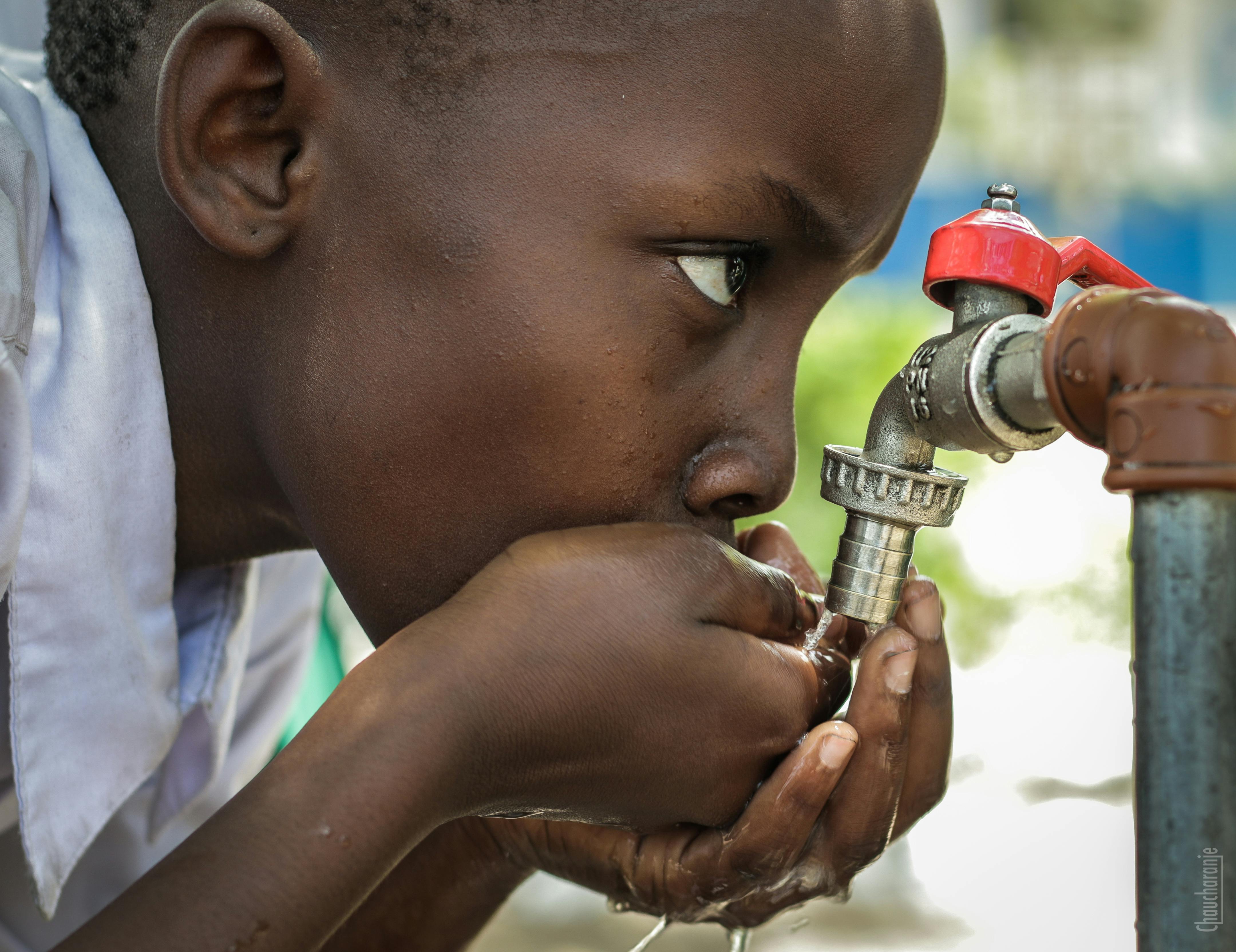Water is essential for life, but there are several different types of water available. Two of the most common types are distilled water and drinking water. Knowing the difference between these two types of water is important in order to ensure that you are consuming the best quality and safest water possible. This article will help you understand the key differences between distilled and drinking water so that you can make an informed decision when it comes to selecting which type of water to consume.Distilled water is water that has been boiled and then condensed back into a liquid form. The boiling process removes any impurities from the water, making it pure and suitable for many uses. Distilled water is also referred to as “demineralized” or “deionized” water. It has a neutral pH level and does not contain any minerals, salts, or other impurities that can be found in untreated water.
What is Drinking Water?
Drinking water, also known as potable water or simply water, is water that is safe to drink or to use for food preparation. It is important to keep drinking water safe and free of contamination in order to avoid any potential health risks. The sources of drinking water can vary depending on where you live, but it can come from surface water (such as rivers and lakes) and groundwater (such as wells).
In order to ensure that drinking water is safe to consume, it must be treated with several processes such as filtration, disinfection, aeration, and sedimentation. These processes remove contaminants such as bacteria, viruses, protozoa, metals, chemicals, and other hazardous materials from the water. Additionally, regular testing must be done in order to check for the presence of any contaminants.
Having access to clean and safe drinking water is essential for human health. It plays a vital role in preventing disease by keeping us hydrated and providing essential nutrients that our bodies need. Drinking contaminated water can lead to various illnesses and even death in some cases. The World Health Organization estimates
Sources of Distilled and Drinking Water
Drinking water and distilled water are both widely available sources of water for human consumption. The primary difference between the two is that drinking water is sourced from naturally occurring sources such as springs, lakes, and rivers, while distilled water is created by purifying existing drinking water through a process of distillation. Drinking water is considered safe to consume if it meets certain health standards set by the government, while distilled water requires additional treatment in order to make it safe for consumption.
Distilled water has a number of applications in different industries. It is used in the medical industry as an ingredient for prescription medications and as a sterilization agent. Distilled water is also used for household cleaning and can be used to make ice cubes. In addition, it can be used for industrial processes such as cooling systems and boiler systems, where its purity makes it an ideal choice.
The majority of drinking water comes from surface sources such as lakes, rivers, streams, ponds, reservoirs, or glaciers. This type of drinking water must undergo treatment in order to make it safe for human consumption. Treatment processes include filtration,
Composition of Distilled and Drinking Water
Water is one of the most important compounds on Earth. It is essential for human health and plays a vital role in many natural processes as well. Knowing the composition of drinking water and distilled water is important to understand how these two types of water differ from each other.
Distilled water is created through a process known as distillation, which involves boiling the water and collecting the steam that condenses back into liquid form. This process removes all impurities, including minerals, from the water. As a result, distilled water is considered to be purer than drinking water.
Drinking water, on the other hand, contains minerals such as calcium and magnesium that are beneficial for human health. It also contains trace amounts of other impurities such as chlorine and fluoride, which are added to improve its taste and safety.
The difference in composition between distilled and drinking water can be seen in their chemical compositions. Distilled water has a neutral pH balance with no ions present while drinking water has a slightly alkaline pH balance due to the presence of minerals like calcium and magnesium. Distilled water also has a higher electrical conductivity than
Distilled Water
Distilled water is a type of purified water created through the process of distillation. It involves boiling the water to vaporize it, and then condensing it back to its liquid state. The process of distillation removes contaminants such as minerals, salts, metals, and other impurities from the water, making it safe to drink. As a result, distilled water has many benefits over regular drinking water. It has a longer shelf life and is free from bacteria and other microorganisms that can cause illness or disease. Distilled water also lacks the unpleasant taste or odor that can be present in tap water. Additionally, because it contains fewer minerals than regular drinking water, distilled water is better for cleaning surfaces and equipment since it does not leave mineral deposits behind.
Drinking Water
Drinking water is any form of liquid that is safe for human consumption. It can come from various sources such as rivers, lakes, wells or even rainwater. While drinking regular tap or bottled water may seem like a simpler solution than distilled water, it does not always provide the same level of purity as distilled water. Regular

Risks of Distilled Water
Distilled water is free from harmful chemicals, heavy metals, and other contaminants. However, it has some risks associated with its consumption. The most common is that it can lead to mineral deficiencies, as the distillation process removes the naturally occurring minerals from the water. This can lead to a host of health problems, such as fatigue, nausea, muscle weakness, and even heart palpitations. In addition, distilled water has an acidic pH level, which can cause stomach upset and indigestion in some people.
Risks of Drinking Water
Drinking water is one of the safest sources of hydration available. However, there are still some risks associated with its consumption. Contaminated drinking water may contain bacteria or other contaminants that can cause illness or disease. Also, certain chemicals such as fluoride or chlorine may be added to drinking water for purification purposes but can have adverse effects when consumed in excess amounts over long periods of time. Finally, hard water (water that contains high levels of calcium and magnesium) can leave deposits on plumbing fixtures and appliances and cause skin irritation in some
Uses of Distilled Water
Distilled water is widely used in many industrial and commercial settings due to its purity. It can be used for a variety of purposes, including cleaning, manufacturing, and medical applications. In manufacturing processes, it is often used to cool down machinery and prevent corrosion. In medical applications, it is used in dialysis machines and as a sterile solution for wound care. Additionally, distilled water is often used as a non-toxic alternative to tap water in many laboratory experiments. It can also be used for ironing clothes, watering plants, and other household uses.
Uses of Drinking Water
Drinking water is essential for maintaining good health as it helps keep the body hydrated and provides essential vitamins and minerals that are necessary for proper functioning of the body. Drinking water can be consumed directly from the tap or bottled water may also be consumed. Additionally, drinking water can be used in preparing foods such as tea or coffee or may even be added to recipes while cooking. Lastly, drinking water is also an important part of recreational activities such as swimming or rafting as it helps keep the body cool in
Cost Comparison of Distilled and Drinking Water
The cost comparison of distilled and drinking water really depends on the type of distilled water purchased. If you buy distilled water in stores, it is generally more expensive than tap water. On the other hand, if you buy it in bulk or from a home distiller, it can be much cheaper. It also depends on how much you need and where you purchase it from.
Tap water is typically cheaper than distilled water because it does not require any distillation process. The cost of the tap water will depend on the municipality that supplies it. Generally speaking, tap water is less expensive than bottled water.
Distilled water can be expensive if purchased in stores because it has been processed to remove impurities and minerals that are found in tap or bottled water. This process requires energy and resources which increases its cost. If you purchase a home distiller, the cost will be significantly lower since you will not be paying for energy or resources to create the distilled water.
When considering the cost comparison between distilled and drinking water, it is important to factor in quality as well as price. Distilled

Conclusion
Distilled water and drinking water are both forms of purified water, but they each have different levels of purity. Distilled water has been processed to remove all dissolved solids, while drinking water is treated to remove certain contaminants. Each type of water has its own benefits and drawbacks depending on the intended use. While distilled water is good for drinking because it contains no impurities, it can lack certain minerals that are necessary for human health. On the other hand, drinking water may contain some impurities but is typically safe for consumption and can provide necessary minerals. Ultimately, the choice between distilled and drinking water depends on individual needs and preferences.
No matter which type of purified water you choose, it is important to drink plenty of fluids to stay hydrated and healthy.

